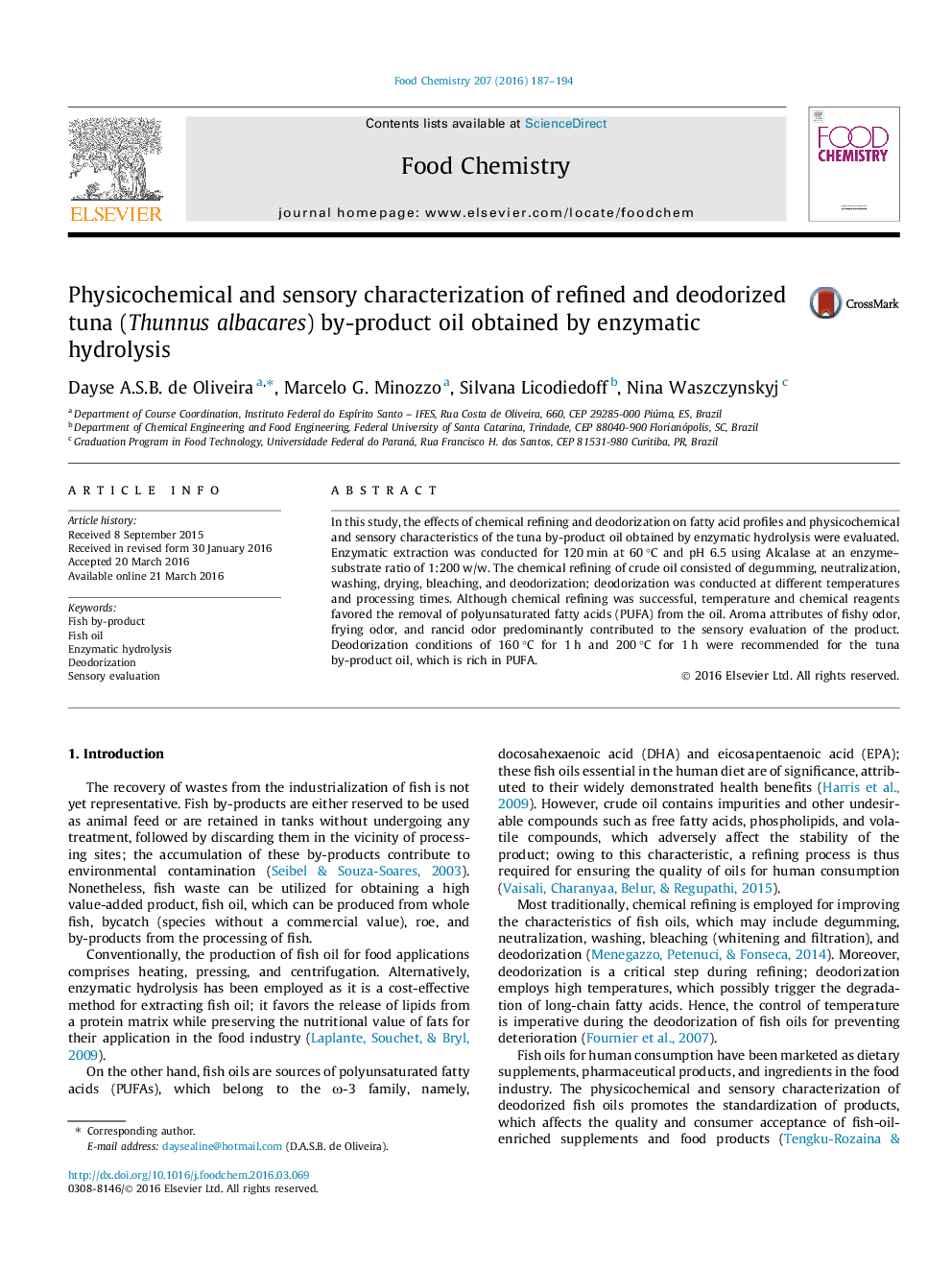| Article ID | Journal | Published Year | Pages | File Type |
|---|---|---|---|---|
| 7588718 | Food Chemistry | 2016 | 8 Pages |
Abstract
In this study, the effects of chemical refining and deodorization on fatty acid profiles and physicochemical and sensory characteristics of the tuna by-product oil obtained by enzymatic hydrolysis were evaluated. Enzymatic extraction was conducted for 120 min at 60 °C and pH 6.5 using Alcalase at an enzyme-substrate ratio of 1:200 w/w. The chemical refining of crude oil consisted of degumming, neutralization, washing, drying, bleaching, and deodorization; deodorization was conducted at different temperatures and processing times. Although chemical refining was successful, temperature and chemical reagents favored the removal of polyunsaturated fatty acids (PUFA) from the oil. Aroma attributes of fishy odor, frying odor, and rancid odor predominantly contributed to the sensory evaluation of the product. Deodorization conditions of 160 °C for 1 h and 200 °C for 1 h were recommended for the tuna by-product oil, which is rich in PUFA.
Related Topics
Physical Sciences and Engineering
Chemistry
Analytical Chemistry
Authors
Dayse A.S.B. de Oliveira, Marcelo G. Minozzo, Silvana Licodiedoff, Nina Waszczynskyj,
